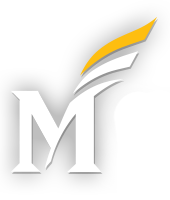
A lot faculty struggle to find time to keep up on their research agendas during the semester. Between meetings, teaching, and all of the other things that add up to a faculty member’s work life, time often gets away from us. So, how do we make time for our research and writing?
A number of faculty from various institutions and disciplines shared their thoughts about writing and research productivity in an article for the The Chronicle of Higher Education. We thought that we would share some of their advice to help you think about making time for your writing and research:
- Rachel Connelly advises self-awareness: “One of the most important ways to increase your productivity is to know yourself.” She suggests structuring your writing around the time of day when you know you are productive.
- Richard M. Felder offers advise that writing faculty often share with their students: “Do your creating and editing sequentially, not simultaneously.” Writers often get bogged down when they focus on production and polishing simultaneously. Felder’s advice to get the ideas out first is effective.
- Shelley Fisher Fishkin prefers long span of time to write, but she recognizes that “those half-hour chunks of time are not to be squandered either.” Theresa MacPhail adds, “The truth is, none of us have time enough to write. Those of us who write regularly make time, fitting small chunks of writing time into our schedules wherever and whenever we can.” This advice resonates with research on the habits of productive writers who take advantage of the few free minutes they have in-between meetings and classes.
- Kristen R. Ghodsee adds to Fishkin’s and MacPhail’s advice: “Look at some of the more substantial items on your schedule and see if you can break them into smaller bits. Keep a running ‘to do’ list of things that require between five to 20 minutes of your time, and then only do those things in your moments of time confetti.”
- Several faculty suggested simple technologies or workflow processes that assist their productivity: Melanie Nelson uses a Kanban board, Theresa MacPhail uses Google Drive on the go, and Tim Slater emails himself “ideabank” emails when he is away from his desk.
One other practice many faculty find helpful is to join a writing group or participate in a writing retreat. Groups and retreats often provide supportive networks that facilitate productivity and hold people accountable. Mason hosts weekly write-ins and biannual retreats in January and May; applications for May’s retreat are due May 3rd. If you are interested in participating in either, visit the WAC Program’s webpage for more information.
